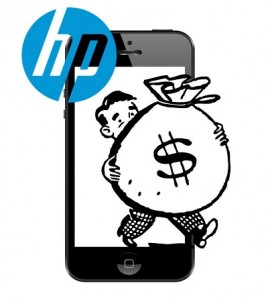As of August, the smartwatch will be making its way to 100 of the brand’s electronics stores.
It has recently been announced that people who want to buy the Apple Watch will soon have 100 more places in which to make the purchase, as that many Best Buy locations will be placing that smartwatch on their shelves.
Another 200 Best Buy stores will be adding the smartwatch to their offerings before the holiday shopping season.
This greater availability of the Apple Watch may play an important role in boosting the sales of this device. This could be especially true when Best Buy has added the smartwatch to the total 300 locations that will be carrying it, as well as on its website. At the moment, the number of places where the gadget can be purchased is quite limited. By boosting the convenience to the consumer, it is more likely that people will start to consider whether or not they actually want it.
Certain models of the Apple Watch will start to be sold at Best Buy as of August 7 and will be priced from $350 and up.
 According to Best Buy senior category officer, Jason Bonfig, “The Apple Watch is a big addition to our stores and website, and we know our customers want it.” Bonfig’s statement also went on to say that “We are excited to bring the Apple Watch to more consumers, especially with the holidays coming up.”
According to Best Buy senior category officer, Jason Bonfig, “The Apple Watch is a big addition to our stores and website, and we know our customers want it.” Bonfig’s statement also went on to say that “We are excited to bring the Apple Watch to more consumers, especially with the holidays coming up.”
Of the total of 30 different smartwatches that have been created by the brand, Best Buy has said that they will be stocking 16 of them. These will include devices from both the Spot model and the Watch lines. They will be available in both the 38 mm and the 42 mm sizes. There will be a number of different watch bands and other types of smartwatch accessories that will be sold by the electronics retailer.
The Apple Watch will be far from the only smartwatch that will be available at Best Buy, which is already selling a number of rival gadgets from other brands. The Apple Watch Edition line that starts at $10,000 will not be sold by the retailer.
Carta Worldwide to provide HP with efficient and secure mobile payments technology
Hewlett-Packard (HP) has chosen Carta Worldwide, a developer of transaction technology, to deliver new mobile payments services to its customers. These services will be delivered to those in Europe, Africa, the Middle East, Asia, and Canada. Carta’s cloud-based payments and tokenization technology will be used to help HP meet the growing demands for mobile payments support that are coming from consumers. This technology may also introduce more security to the payments sector.
Tokenization may help make mobile transactions significantly more secure
HP suggests that Carta is one of the only companies that is capable of offering everything its customers need for convenient and secure mobile payments. The company’s tokenization technology, in particular, is considered quite robust, and may provide consumers with a greater sense of security when it comes to making a transaction with their mobile devices. Tokenization involves using digital tokens in place of financial data, and these tokens can be used to authenticate a transaction.
Mobile payments continue to gain prominence among consumers and businesses alike
 Mobile payments are becoming more popular among consumers, but many people still have concerns about the security of making a transaction with a smartphone or tablet. These security concerns have slowed the adoption of mobile payments among consumers as well as retailers. Companies like Carta and HP have been looking for ways to lay these security concerns to rest and cloud-based payment systems combined with tokenization may be an adequate solution to this problem.
Mobile payments are becoming more popular among consumers, but many people still have concerns about the security of making a transaction with a smartphone or tablet. These security concerns have slowed the adoption of mobile payments among consumers as well as retailers. Companies like Carta and HP have been looking for ways to lay these security concerns to rest and cloud-based payment systems combined with tokenization may be an adequate solution to this problem.
Carta intends to provide HP with future-proof technology that will allow it to compete more aggressively in the mobile commerce space
Carta’s services allow its customers to quickly deploy a wide range of mobile payments solutions. The company believes that its technology will provide HP with a “future-proof” roadmap for its plans in the mobile payments space. HP will, of course, face competition from other companies that have their own interests in mobile commerce, but providing consumers with a safe way to purchase products with a smartphone may win the company some significant favor.
 According to Best Buy senior category officer, Jason Bonfig, “The Apple Watch is a big addition to our stores and website, and we know our customers want it.” Bonfig’s statement also went on to say that “We are excited to bring the Apple Watch to more consumers, especially with the holidays coming up.”
According to Best Buy senior category officer, Jason Bonfig, “The Apple Watch is a big addition to our stores and website, and we know our customers want it.” Bonfig’s statement also went on to say that “We are excited to bring the Apple Watch to more consumers, especially with the holidays coming up.”
 Mobile payments are becoming more popular among consumers, but many people still have concerns about the security of making a transaction with a smartphone or tablet. These
Mobile payments are becoming more popular among consumers, but many people still have concerns about the security of making a transaction with a smartphone or tablet. These 